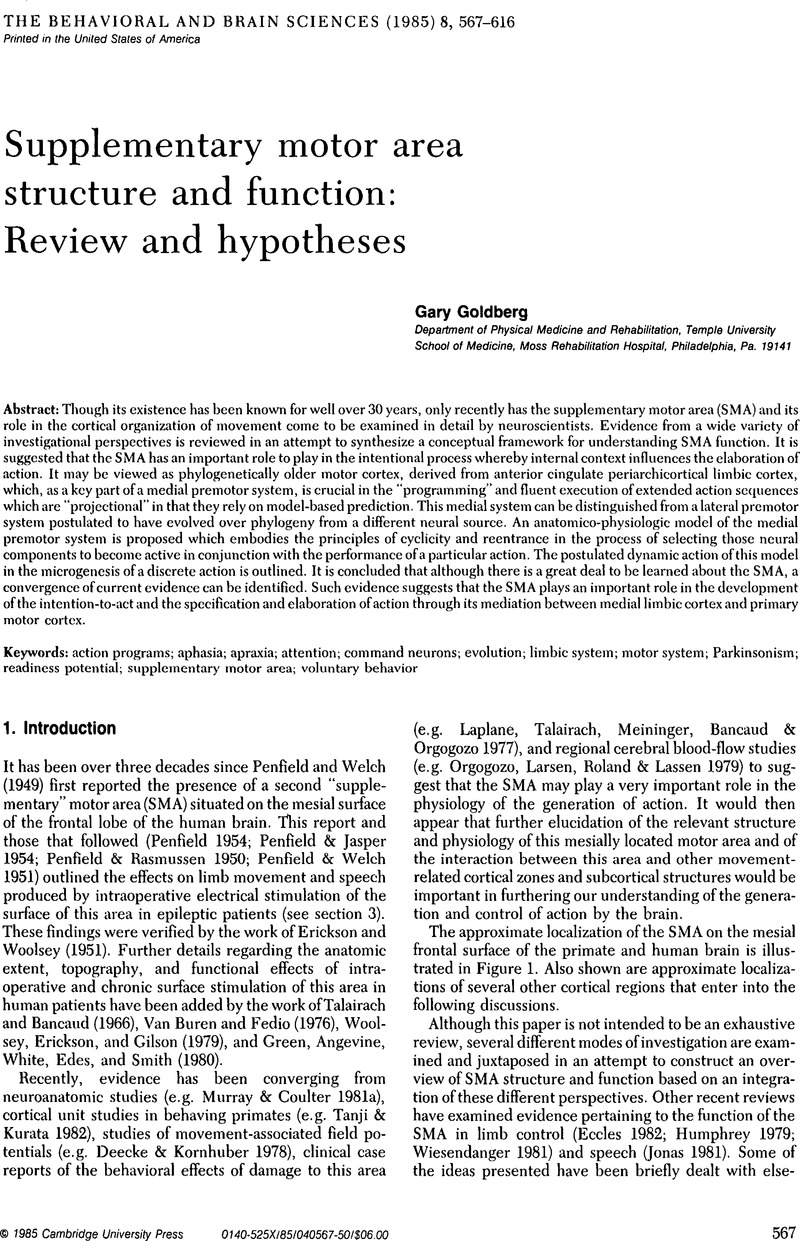Crossref Citations
This article has been cited by the following publications. This list is generated based on data provided by Crossref.
Wiesendanger, Mario
2006.
Eccles’ perspective of the forebrain, its role in skilled movements, and the mind–brain problem.
Progress in Neurobiology,
Vol. 78,
Issue. 3-5,
p.
304.



